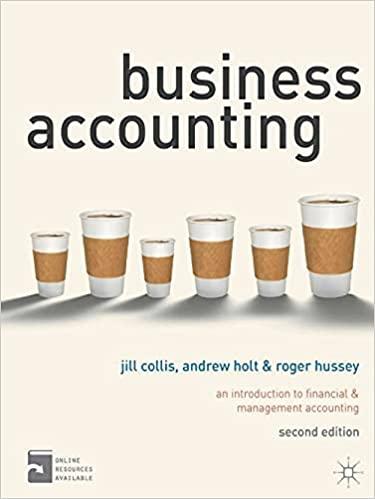Question 68 (1 point) Listen Which of the following was the result on appeal in Fernando Tatis v. U.S. Bancorp, the case in the textbook in which the plaintiff, a major-league baseball player, asked that the defending bank hold his bank statements and failed to notify the bank within thirty days of forgeries by one of his employees? 1) By agreeing to hold the bank statements, the bank implicitly agreed to waive any timely notice of forgeries. 2) Regardless of when notice was received, the plaintiff-depositor was entitled to the return of funds released based on forgeries. 3) Pursuant to the principle of comparative negligence, the plaintiff-depositor and the bank would be required to split losses on an equal basis because they were both at fault. The plaintiff-depositor could not recover for forgeries made and not reported for more than thirty days after the bank statements were made available. 5) The plaintiff-depositor could not recover because the forgeries were not reported within thirty days of when the bank statements were made available, and by not timely reporting the first forgery, the plaintiff-depositor lost all rights to recover funds lost because of forgeries by the same forger. 4) Question 73 (1 point) Listen Generally, assuming no negligence on the part of the victim, when an endorsement on a check has been forged and properly reported to the bank, which party is the party ultimately liable for the loss? 1) The drawer 2) The first party to accept the forged instrument 3) The first legitimate endorser of the instrument O4) The bank of the first party to accept the forged instrument 5) The bank of the drawer, even if proper notice was given of the forgery > Question 75 (1 point) Listen 69 72 75 78 Book Payment. Molly and Pat signed a contract providing that "Pat will furnish the correct used business law book for use in Molly's business law class and in return on August 15, 2017, Molly promises to pay Pat $50 for the book." Molly took the book and planned to pay Pat. Meanwhile, Pat properly assigned the contract Molly had signed to Jack. When Molly went to class, however, she discovered that the book was the incorrect book, When Jack asked Molly for payment, Molly refused, Molly told Jack that the book was useless to her and that she was not paying either him or Pat anything for it. Jack told Molly that he had an enforceable assignment in the form of a negotiable instrument and that he could collect regardless of whether the book was useless. Molly did not believe him. Continuing with her attempt to save money on books, Molly agreed to buy Tim's United States history book for $40. She had an oral agreement with Tim that he would give her the book and that she would pay him in three days. This time Molly got the right book. Tim, in writing, properly assigned the right to the $40 payment to Richard, Richard asked Molly for the money. Molly admitted her agreement with Tim but told Richard that she was not going to pay him because he did not have a negotiable instrument. Molly also purchased a communications book from Sam promising in writing to give him in return the next day, to his order, a used DVD player she owned. Which of the following is true regarding Molly's assertion that Richard did not have a negotiable instrument? 81 84 87 90 93 2) 96 99 1) Molly is incorrect, and the document by which Tim assigned the right to Richard is a negotiable instrument with regard to her duty to pay. Molly is correct because her agreement with Tim was not in a writing containing words of negotiability or words indicating the existence of a bearer instrument 3) Molly is correct because Richard was not a party to the original contract. 4) Molly is incorrect because her admission establishes the existence of a negotiable instrument between her and Tim that could be assigned to Richard 5) Molly is correct because she did not immediately transfer funds to Tim, and because her agreement with Tim was not in a writing containing words of negotiability or words indicating the existence of a bearer instrument









